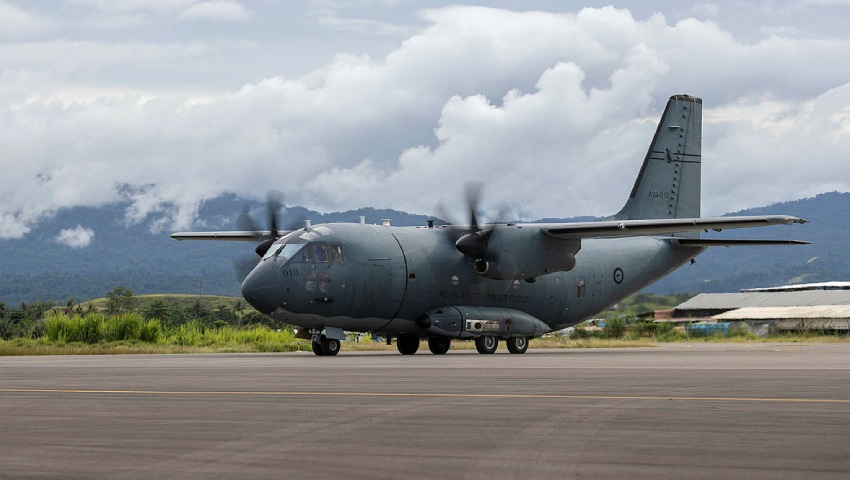What are the geopolitical implications of China’s latest efforts to expand its influence in the Pacific?
Last November, the Commonwealth government accepted a formal request for assistance from the Solomon Islands government under the 2017 Bilateral Security Treaty, agreeing to provide urgent military assistance.
Royal Australian Air Force aircraft deployed from Canberra to provide airlift for members of the Australian Federal Police (AFP) and officials of the Department of Foreign Affairs and Trade.
Approximately 40 personnel from Army’s 3rd Brigade, 6th Brigade and 17th Brigade also departed Townsville for Honiara, the island nation’s capital.
AFP and ADF elements were tasked with supporting the Royal Solomon Islands Police Force in defusing tensions and stabilising the region.
A Royal Australian Navy vessel was also deployed to support the Royal Solomon Islands Police Force with maritime security operations.
This followed an outbreak of violent protests, reportedly sparked by the government’s decision to switch diplomatic allegiance from Taiwan to China.
Prime Minister Manasseh Sogavare defended the decision, claiming it puts the Solomon Islands on the “right side of history”, while opposition MPs in Honiara and Daniel Suidani, Premier of Malaita, voiced strong opposition to the move.
Suidani has continued to forge ties with counterparts in Taiwan, while also gathering increased support for an anti-China stance among the general public.
His stance garnered support from the US, which provided US$25 million in development assistance to Malaitan provincial authorities in 2020.
This led Prime Minister Sogavare to accuse “foreign powers” of meddling in the country’s internal affairs.
Now, less than five months after the outbreak in civil unrest, a new draft security agreement between China and the Solomon Islands has been leaked to Suidani, rekindling tensions.
The draft agreement reportedly includes Chinese commitments to deploy “police, armed police, military personnel and other law enforcement and armed forces” personnel to the Solomon Islands.
This would build on existing security ties between the nations, with China recently sending liaison officers and anti-riot equipment to train the Royal Solomon Islands Police Force in public order.
The draft security agreement also reportedly provides China with greater maritime access to the island nation by facilitating, with the consent of the government, ship visits, logistical support and stopovers.
These measures pose new challenges for Australia and like-minded regional partners, increasingly threatened by China’s growing influence in the region, particularly the expansion of its military presence.
According to Mihai Sora, project director, Australia-NG Network at the Lowy Institute, China’s inroads could undermine collective security efforts agreed to under the 2018 Boe Declaration.
“The ambitious scope of this draft agreement is further evidence of China’s strategic intent in the Pacific,” he writes.
“Whether or not China will ultimately be able to establish a permanent military base in Solomon Islands is not yet certain – if anything, this is the first step of many towards such a goal.”
Sora references recent reports in a Solomon Islands newspaper of a cache of Chinese replica assault rifles smuggled into the country on a logging ship, prompting speculation over a pre-existing military agreement.
“Signing up to a security agreement with China that could trigger perceptions of infringements on Solomon Islands’ sovereignty would contribute to internal instability at time when the issues behind last year’s riots are not yet settled,” Sora continues.
An over-accommodating agreement with China, Sora adds, would be politically damaging for Prime Minister Sogavare, who would “expose himself to accusations of elite capture”.
To counter such criticisms, Sogavare has sought to emphasise the economic benefits of closer Chinese ties, in light of the growing trade relationship and Beijing’s support of a number of key infrastructure projects across the country
Ultimately, Sora claims this latest security draft agreement is further evidence of a rapidly changing regional order.
“Australia cannot, and does not, expect to be the only security partner for Pacific countries. But an increased security presence of a country like China in the Pacific further escalates the geopolitical competition in the region,” he adds.
“The potentially zero-sum nature of great power rivalry in the Pacific does not sufficiently address the prosperity needs of individual Pacific countries and can undermine their security and stability, particularly those with a recent history of internal conflict such as Solomon Islands.”
According to Sora, Australia needs to be “realistic” about China’s increased security presence in the Pacific.
“The challenge for policymakers in Canberra will be how to respond to an increasingly crowded Pacific without escalating geopolitical tensions in the region,” he writes.
“Australia should continue to focus on providing security support that protects Pacific countries’ sovereignty, is transparent, and delivers on the human security priorities Pacific countries have identified for themselves.”
Get involved with the discussion and let us know your thoughts on Australia’s future role and position in the Indo-Pacific region and what you would like to see from Australia's political leaders in terms of partisan and bipartisan agenda setting in the comments section below, or get in touch with








